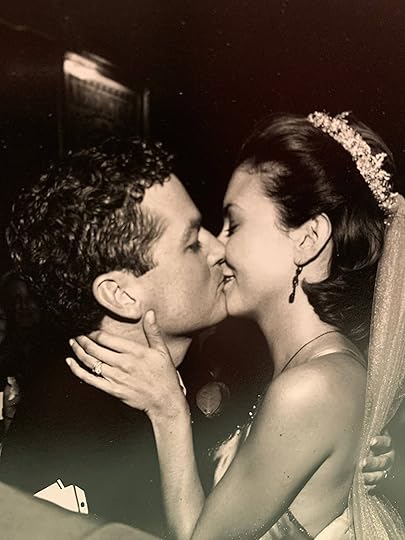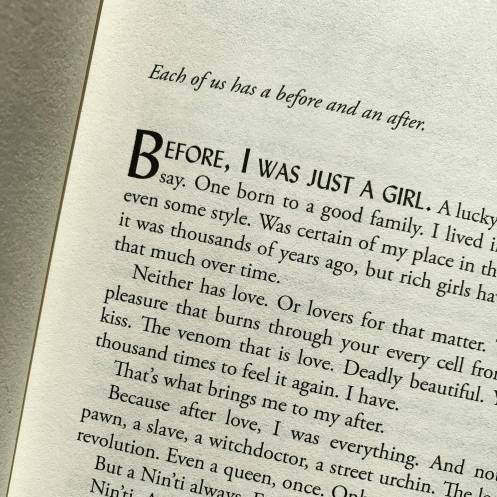Love Language
Language means a great deal to me–not only as a writer but as a human. Our choice of words matters, and the way we frame things to ourselves and others has a tangible impact on our lives. Words have the power to sway, seduce, transcend, and destroy. The meanings we ascribe to words, and the way we arrange them, don’t just have immediate effects–they build on each other, accumulating until they shape how we experience the world.
Imagine the difference between telling yourself that a rejection letter is just a temporary setback, versus seeing it as proof that you’re a God-forsaken loser who should quit while she’s ahead. One gives you room to move forward. The other slams the door. The more optimal framing is obvious to any sentient being.
Dull, vague, or lifeless language in a business proposal won’t just bore venture capitalists–it’ll make them resent you for wasting their time.
Dull, vague, or lifeless language in a love letter? That’s how you end up in the friend zone faster than you can say incel.
And yet we let flimsy, bloodless phrases dominate how we speak–especially when it comes to the things that matter most.
Because I care a great deal about love–I mean, hell, I write about it enough, and I’ve dedicated my life to it–there’s one unpardonably sloppy word I’m ready to take down. I’m not going to be polite about it either. By the time you finish reading this missive, I hope I’ve wrecked this word for you forever. Or at least in one specific context. The word itself isn’t the problem. It’s how we’ve started applying it.
That word is partner.
Partner is a fine word if you walk up to a cowboy and say, “Howdy, partner.” It’s great if you’re referring to your business associate, or a co-conspirator in crime, or someone with whom you’re jointly applying for a bank loan.
But if you’re talking about your wife or husband–the love of your life, your best friend in the world, the person who either bore or sired your children, who might one day spoon-feed you applesauce as you die of some unspeakable disease–and you call them your partner?
Well then, get out the spreadsheet already, so you can itemize your feelings.
Partner is cold, witless, sexless. It’s a depthless handshake exchanged with a colleague.
Now, I understand the politics that might be behind switching out a gloriously ancient (and therefore, for some, loaded) term like wife or husband. Maybe it feels outdated, exclusionary, patriarchal. And yes, language evolves, and sometimes people want to use words that feel more neutral or inclusive. I get it.
But we’re not starved for options. There are myriad descriptors for a spouse that are infinitely more resonant than “partner.” Frankly, I would rather my husband call me his bitch. At least bitch has a sense of humor. If he ever referred to me as his partner, I’d assume he was about to ask for separate bedrooms and a division of assets.
I’m not saying that everyone who uses partner has a neutered relationship. Of course not. We all absorb the vocabulary that gets mainstreamed around us. We want to be understood, or not seen as archaic, so we adopt the lingo.
This isn’t a judgment. It’s a rant. A very personal one. Something I’ve been holding in for too long.
As someone who makes her living with words, who sees language as not just a craft, but a calling, I believe in precision. Especially when it comes to naming the one person who is charged with always having your back. The one who holds your heart like it’s something breakable and sacred. The one who is expected to cradle your soul in their hand, safeguard your dignity, and stand beside you when you’re bleeding and breaking.
A partner might check the terms of your agreement before signing on for that kind of intimacy. But a husband, a wife, a beloved, a soul mate, a bride, a benedict–they would know it in their bones.

Recently, I learned I’m not alone in my contempt for “partner” in this context. Last week, my husband and I hosted a dinner party with three couples: an American and his Slovak wife, a Pakistani couple, and us. All were in long-standing happy marriages. All were thoroughly modern–working wives, husbands who share the load at home. These were not “trad” fetishists.
When I confessed my feelings about the word “partner,” the whole table erupted in agreement. The Pakistani woman spoke about her years in Australia and how uncomfortable it was being expected to use the term.
“If you say husband, you’re looked at like a troglodyte,” she said. “But it was so hard for me to use partner. It tripped off my tongue so clumsily and felt so inadequate.”
Inadequate. That word struck a chord. Because that’s exactly the problem.
“Partner” doesn’t even begin to describe devoting your life to another human being. It doesn’t account for the tenderness, the fury, the loyalty, the erotic mystery, or the simple fact that you’d rather sit beside this person in silence than speak to anyone else in the world.
Words matter. They shape how we love, how we honor each other, how we signal what someone means to us. If partner is the best we can do, then maybe it’s time we reached for better words–ones with heat, history, and heart.




